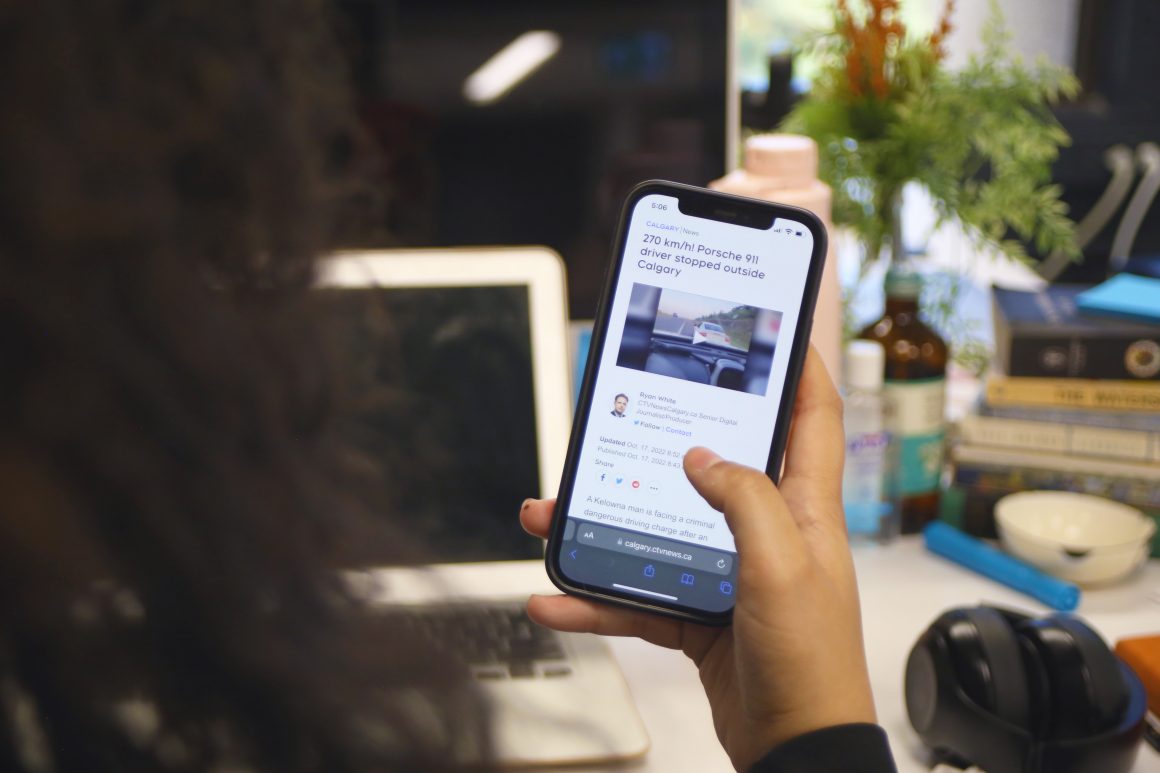
Reading the news can distract you from important thoughts
By Megan Koch, November 18 2022—
Since 2020, news channels and social media have been full of negative and sometimes scary stories. It’s important to stay caught up on current events, but two recent studies show that consuming news might be distracting when trying to complete other tasks. The Gauntlet sat down for an interview with doctoral student Chelsie Hart to talk about the research, which was directed by Dr. Julia Kam from the Department of Psychology and the Internal Attention Lab at the University of Calgary.
The first study focused on COVID-19-related news during the peak of the pandemic. A second study occurred later and focused on more general news consumption as opposed to strictly coronavirus content. Both studies show how thoughts are often task-unrelated (TUT) after consuming news media.
“[TUT] is essentially just when your thoughts sort of turn inward and you start thinking about whatever is on your mind rather than whatever task you’re currently doing,” said Hart.
Hart predicted that the first study would show an increase in the frequency and likelihood of TUTs after consuming news media. The results of the study confirmed she was right. The second study, which took place over a year later, shows similar conclusions.
To reduce the frequency of TUTs, Hart shared that it’s a good idea to avoid news consumption within two hours of an important task. However, she also noted that TUTs are very dependent on what’s important or concerning to individuals, even outside of the news. Motivation is another factor that affects the level of focus on any given task. According to Hart, the most important thing to do before tackling an important task is to monitor what kinds of media you’re consuming and when you’re consuming it.
“Having grown up before smartphones were a thing, I can tell you that it’s very easy to access news now. It’s very easy to have notifications that instantly distract you. It’s very easy to just pick up your phone,” said Hart.
Even though it seems this generation may be more susceptible to TUTs, Hart said that there were countless ways people got distracted even before smartphones existed. Newspapers, ads, television and magazines were contributors to TUTs, too. The biggest change is perhaps the routine that came along with getting the newspaper to read with breakfast, compared to the instant access to news that this generation has grown accustomed to with smartphones.
“It’s hard to say whether we can really blame technology for an increase in task-unrelated thoughts. I think it might make a difference depending on what you use your smartphone for, but I think no matter what people are going to be exposed to news,” said Hart.
There is a silver lining with TUTs. Although it can be annoying or stressful to get distracted from particular tasks, TUTs are important for creativity and problem solving.
“It’s not that you want to avoid task-unrelated thoughts,” said Hart. “They’re not always a bad thing. A lot of research associated it with making errors on tasks, but it’s also associated with creativity and planning and problem solving. So, it’s not something you need to avoid all the time.”
If you would like to learn more about Hart’s research, you can read the study online under the title “Task-unrelated thought increases after consumption of COVID-19 and general news.”
To learn more about Hart’s research, you can read the study here.
